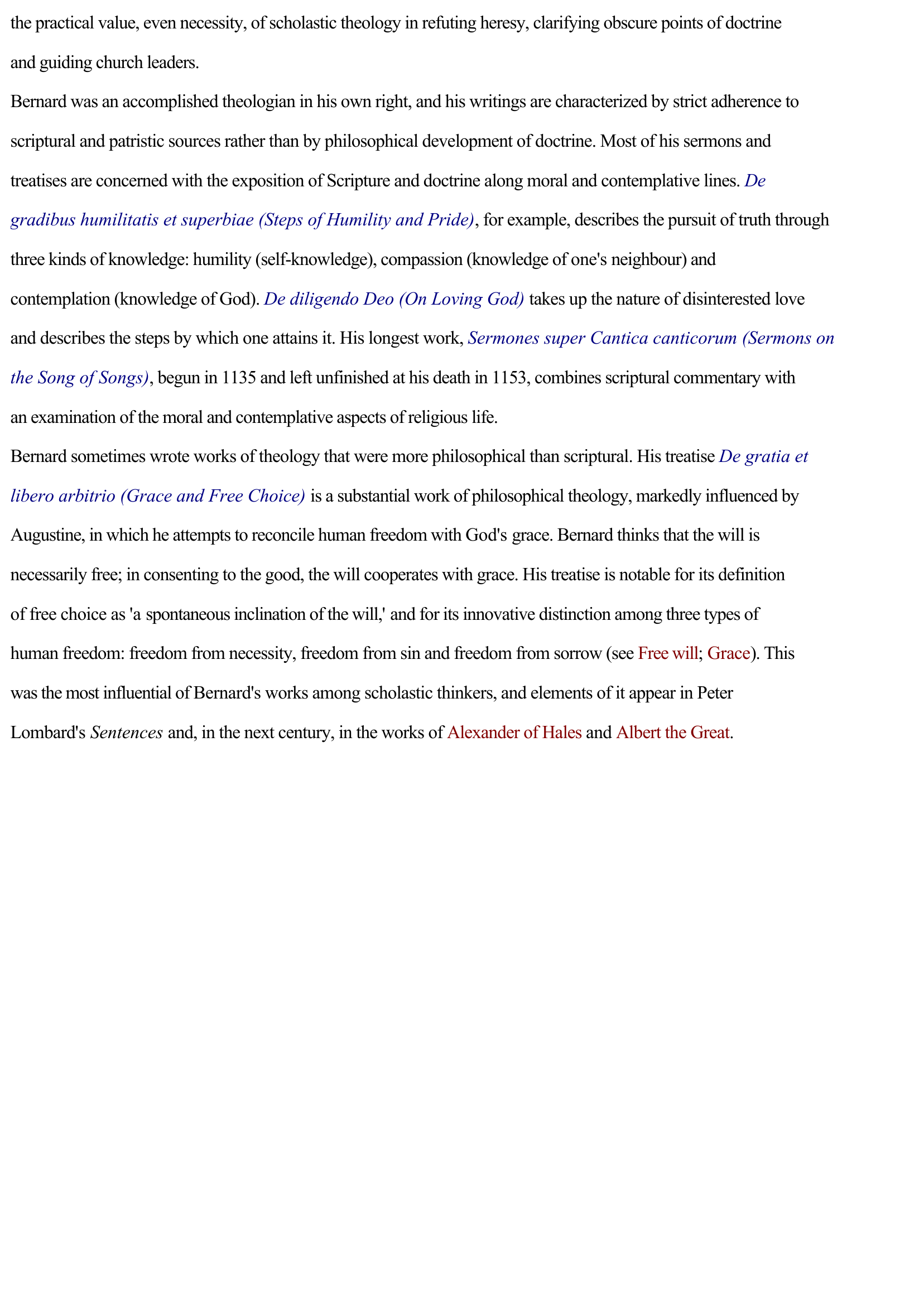Bernard of Clairvaux
Publié le 22/02/2012

Extrait du document
«
the practical value, even necessity, of scholastic theology in refuting heresy, clarifying obscure points of doctrine
and guiding church leaders.
Bernard was an accomplished theologian in his own right, and his writings are characterized by strict adherence to
scriptural and patristic sources rather than by philosophical development of doctrine.
Most of his sermons and
treatises are concerned with the exposition of Scripture and doctrine along moral and contemplative lines.
De
gradibus humilitatis et superbiae (Steps of Humility and Pride) , for example, describes the pursuit of truth through
three kinds of knowledge: humility (self-knowledge), compassion (knowledge of one's neighbour) and
contemplation (knowledge of God).
De diligendo Deo (On Loving God) takes up the nature of disinterested love
and describes the steps by which one attains it.
His longest work, Sermones super Cantica canticorum (Sermons on
the Song of Songs) , begun in 1135 and left unfinished at his death in 1153, combines scriptural commentary with
an examination of the moral and contemplative aspects of religious life.
Bernard sometimes wrote works of theology that were more philosophical than scriptural.
His treatise De gratia et
libero arbitrio (Grace and Free Choice) is a substantial work of philosophical theology, markedly influenced by
Augustine, in which he attempts to reconcile human freedom with God's grace.
Bernard thinks that the will is
necessarily free; in consenting to the good, the will cooperates with grace.
His treatise is notable for its definition
of free choice as 'a spontaneous inclination of the will, ' and for its innovative distinction among three types of
human freedom: freedom from necessity, freedom from sin and freedom from sorrow (see Free will ; Grace ).
This
was the most influential of Bernard's works among scholastic thinkers, and elements of it appear in Peter
Lombard 's Sentences and, in the next century, in the works of Alexander of Hales and Albert the Great ..
»
↓↓↓ APERÇU DU DOCUMENT ↓↓↓
Liens utiles
- DEGRÉS DE L'HUMILITÉ ET DE L’ORGUEIL (Des) (résumé & analyse) de saint Bernard de Clairvaux
- TRAITÉ DE L'AMOUR DE DIEU de Bernard de Clairvaux (résumé et analyse)
- LETTRES de Bernard de Clairvaux. Résumé
- LETTRES de Bernard de Clairvaux.
- CARDUCHO Vincente : Saint Bernard de Clairvaux rend visite au révérend père général Guigues I (analyse du tableau).

































